- Provider Resource
- Home
- Browse Provider Resource
- Refer a patient
UW Medicine Heart Institute provides a full range of cardiac care - from acute inpatient through outpatient clinic and diagnostic care - at hospital and clinic locations around the region. Our multidisciplinary team of cardiologists, cardiothoracic surgeons, and other highly-trained clinicians is internationally recognized for their expertise in treating coronary artery disease, heart rhythm disturbances such as atrial fibrillation, heart failure and adult congenital heart disease. We’re also adept at performing advanced procedures and complex surgeries, including heart transplantation, ablations and percutaneous heart valve replacement.
Back to Top
Videos
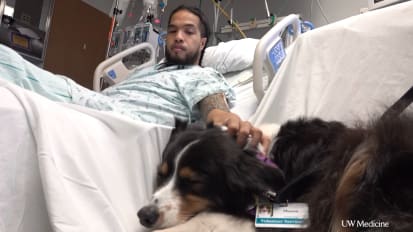 Video
Video
Younger People Can Suffer From Heart Failure Too
Dr. Claudius Mahr, a cardiologist with UW Medicine's Heart Institute, explains heart failure is a growing, all too common issue that affects people of all ages.
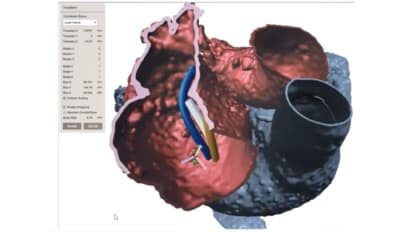 Video
Video
3D Printing and Virtual Planning for Clinical Care Innovation
Can we leverage imaging and modern 3D printing to improve the delivery of patient care and innovate newer approaches to that care?
 Video
Video
Should the ISCHEMIA Trials change how we care for patients with stable ischemic heart disease?
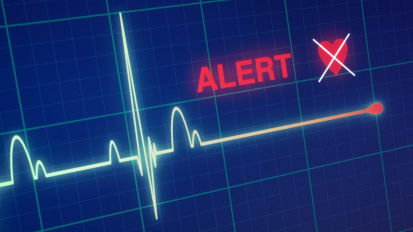 Video
Video
Heart Failure with Preserved Ejection Fraction
UW Medicine Heart Institute cardiologist Stephen Farris, MD, presents on the pathophysiology of the syndrome, insights from trials and potential therapies which have been shown to improve outcomes in this more difficult-to-treat form of heart failure.
 Video
Video
Outcome Disparities in Young Women with Acute MI
Katie Dawson, MD and Cardiology Fellow, discusses disease prevalence and mortality trends, clinical features which may explain rising disease prevalence, aspects of care which place young women at higher risk and areas to focus on to improve outcomes.
 Video
Video
Brain Protection After Cardiac Arrest
UW Medicine Heart Institute cardiologist Francis Kim, MD, presents on Brain Protection After Cardiac Arrest, covering dose-finding trials, rates of re-arrest and clinical solutions for the metabolic phase.
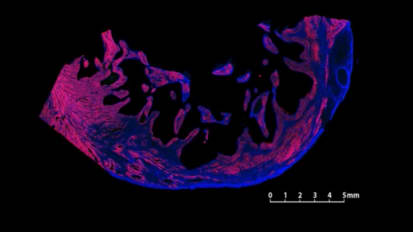 Video
Video
Unbreaking the Heart - Cardiac Remuscularization in Non-Human Primate Models
In this presentation Billy Chen, MD, discusses a brief history of regenerative biology and stem cells, prior studies in cardiac regeneration, results from non-human primate studies and the limitations of the studies.
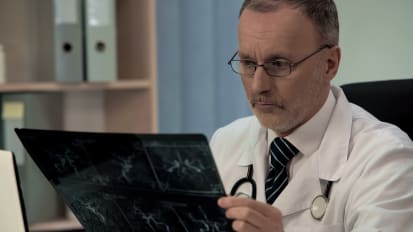 Video
Video
Role of Cardiac CT for Evaluation of Stable Coronary Artery Disease
Hans Huang, MD, discusses coronary artery calcium (CAC), coronary CT angiography (CTA) and reviews the importance of imaging.
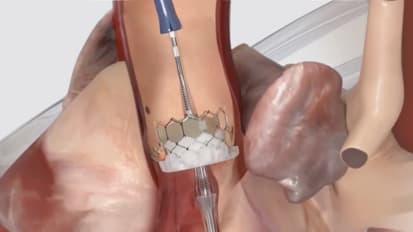 Video
Video
Tailoring Aortic Valve Treatments to the Patient
James McCabe, director of cardiac catheterization at UW Medical Center, explains how TAVR opens up opportunities to treating aortic stenosis.
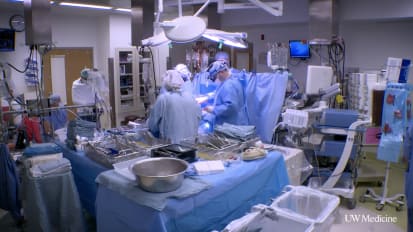 Video
Video
Donor Heart Infected with Hepatitis C Saves Man's Life
UW Medical Center's new protocol allows heart-transplant candidates to opt in to be considered for matching donor organs even if the organ is infected with hep C, and then take an eight-week course of medication to clear the virus.
 Video
Video
The Emerging Field of Sports Cardiology: Insights & Controversies
The number of individuals engaging in a higher level of exercise and activity has been increasing over the past several decades, including professional & intercollegiate sports and intense recreational activities, such as marathons and ...
 Video
Video
Ambulatory PA Pressure Monitoring: Another Tool in the Heart Failure Toolbox
Gregory Wood, MD, explains the increasing burden heart failure has on the health system and how ambulatory pulmonary pressure monitoring helps to solve this problem.
 Video
Video
John Scott, MD, MSc, and Lisa Chew, MD, MPH, discuss best practices to improve the referral experience.
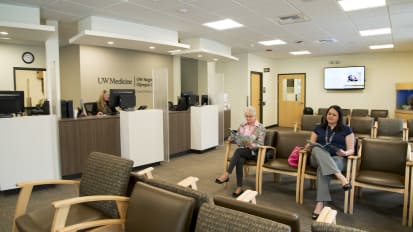 Video
Video
The American Healthcare System How We Got Here and Where We Are Going
Larry Dean, MD, discusses the economics of healthcare, particularly as it focuses on hospitals and physicians.
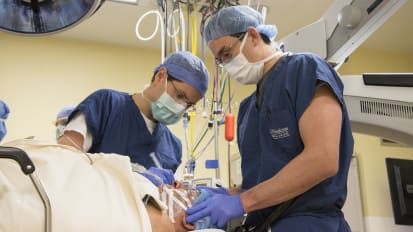 Video
Video
I Work, I Work, I Work: Insights from iCOMPARE and Other Resident Burnout Data
Joyce Wipf, MD, shares data from the iCOMPARE trial and on resident burnout.
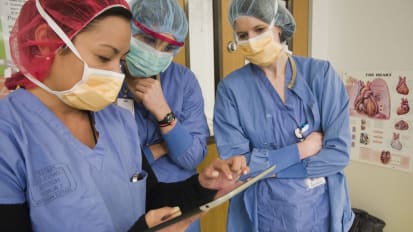 Video
Video
Combined Antiplatelets and Anticoagulants for Atherosclerosis: Insights from the COMPASS Study
Kelley Branch, MD, MS, and Jeffery Probstfield, MD, provide insight into the COMPASS study, discussing the objectives and primary outcomes, proven effective secondary prevention therapies and conclusions from the study.
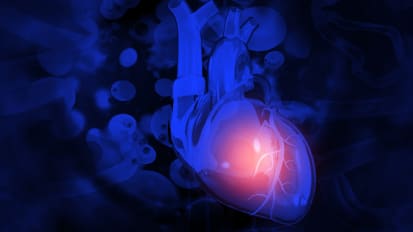 Video
Video
The Changing Paradigm of Coronary Artery Disease Treatment from Angiography to Physiology
William Lombardi, MD, discusses treatments for coronary artery disease, including several case studies, best treatment approaches and changes needed in post-graduate training.
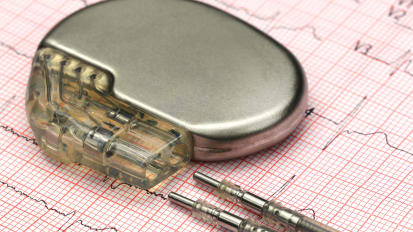 Video
Video
Cardiac Pacing: Has Anything Changed in 60 Years?
Jordan M. Prutkin MD, MHS, FHRS, explains how pacemakers have changed over the years and takes a look into the future of these devices.
 Video
Video
Transcriptional Regulation of Cardiac Na+ Channel
Haodong Xu, MD, PhD, discusses current research on the regulation of cardiac sodium channel, performed at the Department of Pathology, UW Medicine.
 Video
Video
Clinical Practice Guidelines: Getting to the Heart of the Matter
Zachary Goldberger, MD, MS, discusses the history of ACC/AHA clinical practice guidelines and how they are developed.
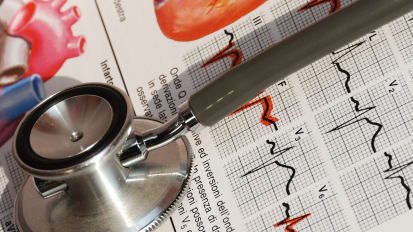 Video
Video
Update in the Management of Ventricular Arrhythmias: A Focus on Ablation
Melissa Robinson, MD, focuses on Ventricular Tachycardia (VT) and structural heart disease in this Cardiology Grand Rounds presentation.
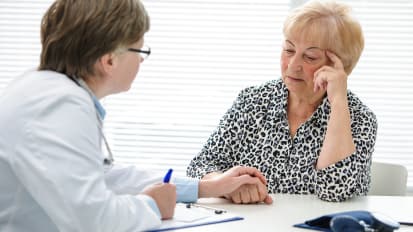 Video
Video
Depression Treatment in Heart Failure
Mark Sullivan, MD, discusses the correlation between depression and heart failure.
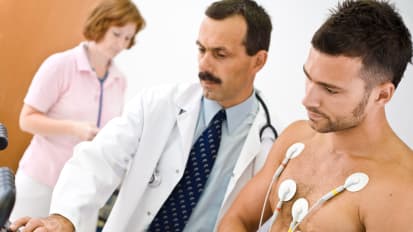 Video
Video
Cardiac Syncope in 2018: Not for the "Faint" of Heart
Zachary D. Goldberger, MD, MS, discusses the evaluation and management of syncope in this Department of Medicine Grand Rounds presentation.
 Video
Video
COMPASS Trial Insights into Aspirin and Rivaroxaban Combined
Jeffrey L. Probstfield, MD, FACP, FACC, FESC, and Kelley Robert Branch MD, MS, discuss "Rivaroxaban With or Without Asprin in Stable Cardiovascular Including Peripheral or Caroid Artery Disease," a UWMC Cardiology Grand Rounds presentation.
 Video
Video
Psychosocial Concerns in the Care of Adults with Congenital Heart Disease
Jill M. Steiner, MD, discusses the common and under-recognized neurodevelopmental and mental health issues in adults with Congenital Heart Disease.
 Video
Video
Eugene Yang, MD, discusses recognizing high-risk groups, identifying statin-related side effects, managing statin intolerance, non-statin treatments and PCSK9 clinical trials.
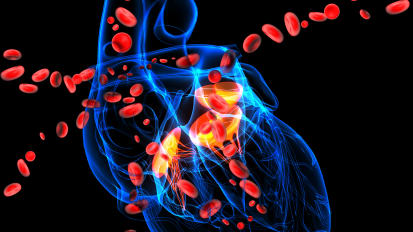 Video
Video
Bicuspid Aortic Valves and Big Aortas; What is the Big Fuss?
Andrew Cheng, MD, presents statistics on the bicuspid aortic valves and aortopathy, BAV morphology as a predictor of pathology, prevailing etiologies of aortopathy, and more.
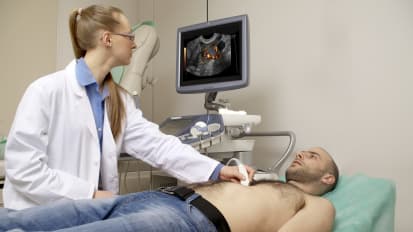 Video
Video
Focused Cardiac Ultrasound: Evolving Teaching with Technology
Shannon McConnaughey, MD, discusses the clinical applications, limits and technical challenges of focused cardiac ultrasound (FoCUS) and provides teaching strategies for complex learning tasks.
 Video
Video
The EHR in 2018: Current Status and Future, Locally and Nationally
Thomas Payne, MD, and Paul Sutton, MD, PhD, provide an update on the current status of EHRs, both locally and nationally.
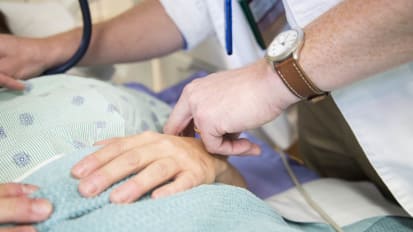 Video
Video
Implementation of Structured Interprofessionalism Beside Rounding in Two Cardiology Units
Kevin O’Brien, MD, Erin Blakeney, PhD, RN, & Susan Pambianco, ARNP, University of Washington Regional Heart Center, Inpatient Change Team, discuss the complexity of caring for patients with heart failure and what practices can help this patient population
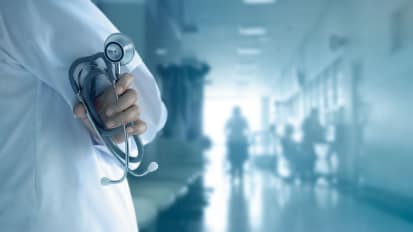 Video
Video
Janice A. Sabin, PhD, MSW, defines implicit bias and how to recognize how implicit bias may be operating in a clinical setting.
 Video
Video
Heart Failure Transition of Care Programs
Hilary Law, MN, RN, CHFN, Heart Failure Transition Nurse at the University of Washington Medical Center, stresses the importance of transition of care programs.
 Video
Video
George Demiris PhD, FACMI, provides an overview of the current status and potential of tele-health in supporting home based symptom management.
 Video
Video
The Role of the Kidney in Heart Failure
Todd Dardas, MD, MS, discusses the different mechanisms of renal dysfunction in heart failure and different approaches to addressing renal dysfunction.
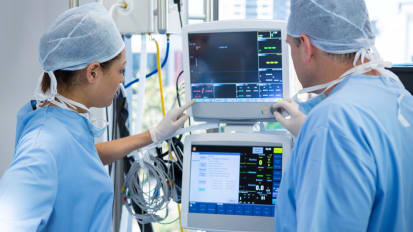 Video
Video
Remote Pulmonary Pressure Monitoring
Todd Dardas, MD, MS, describes the function of the CardioMems system and discusses the results of the CHAMPION trials.
 Video
Video
Transitions of Care: Discharge & Medication Reconciliation Process
Beatrice Wong, PharmD, BCPS, discusses three factors that can be identified in patients with heart failure that would increase the likelihood of hospital readmission.
 Video
Video
Medical Genetics in the Age of Genomics and Precision Medicine
Fuki Hisama, MD, describes the scope of medical genetics in medicine, explaining possible results of genetic tests and the significance of variant interpretation.
 Video
Video
Evaluation of Stable Coronary Artery Disease: Time for a New Paradigm?
Andrew Harris, MD, covers Coronary CT Angiography and how it should be among the recommended first-line tests for intermediate pre-test probability for Coronary Artery Disease.
 Video
Video
Putting It Together: PHARMACOLOGY
Kevin D. O’Brien, MD, FAHA, addresses issues of polypharmacy and costs for patients.
 Video
Video
Hidden Issues & Challenges in Managing Heart Failure Patients: Psychosocial Aspect of Care
Alice Chang, LICSW, CCTSW identifies psychosocial factors related to care planning and management of heart failure patients.
 Video
Video
Depression in Heart Failure: Part 1
Jean Tang, PhD, PMHNP-BC, APRN, describes shared symptoms between depression and heart failure. Dr. Tang also discusses ways to recognize risk factors for comorbid depression and heart failure.
 Video
Video
The Heart Failure Continuum: An Overview of Contemporary Practice
Claudius Mahr, DO, gives an overview of acute heart failure and the risk stratification in chronic heart failure. Dr. Mahr also discusses new therapeutic options available today.
 Video
Video
Heart Failure: Identifying the Syndrome and Burden of Disease
Todd Dardas, MD, MS, defines factors that contribute to the prevalence of heart failure, identifies modifiable risk factors that are most responsible for reducing prevalence of heart failure.
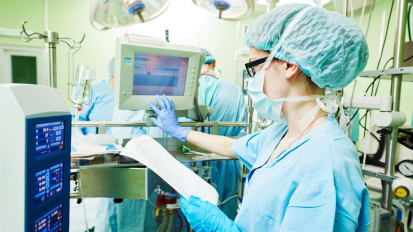 Video
Video
Heart Surgery Simulation at the University of Washington
Nahush Mokadam, MD, talks about heart surgery simulation and surgeon training at the University of Washington.
 Video
Video
Left Ventricular Assist Devices: When to Consider and What to Expect?
Claudius Mahr, FACC, FESC, Associate Professor of Clinical Medicine and Cardiac Surgery at UW Regional Heart Center leads a panel discussion on when to consider the use of an LVAD and what to expect.
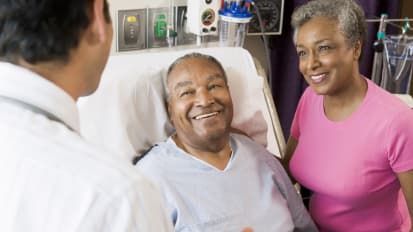 Video
Video
Sexuality and Intimacy in Patients with LVADs and their Partners Uncovering the Undiscussed Facts
Jason Bjelkengren, BSN, RN, CCRN and James N. Kirkpatrick, MD cover patient and partner intimacy in patients with LVADs and a discussion of implications.
 Video
Video
The Future of Cardiac Rehabilitation
Alexis L. Beatty, MD discusses innovations in cardiac rehab delivery.
 Video
Video
Update on Pacemakers and ICDs: Leaded and Unleaded
Jordan Pruktin, MD, reviews the basics of how cardiac devices work and how to recognize who are good candidates for leadless pacers and subcutaneous ICDs.
 Video
Video
Coronary Stenting and the Impact of Report Cards on the Public Health
James McCabe, MD, discusses public reporting transparency and its effects on behavior changes among physicians looking through the lens of coronary artery stenting.
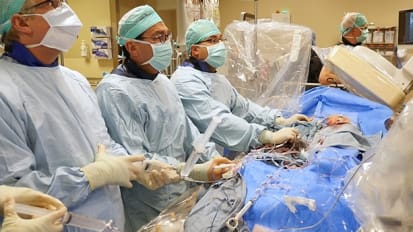 Video
Video
UW Cardiac Team First in World to Perform Novel Heart-Valve Procedure
On July 17, a UW Medicine team performed the first-ever catheter-based surgical laceration to replace a failing artificial aortic valve.
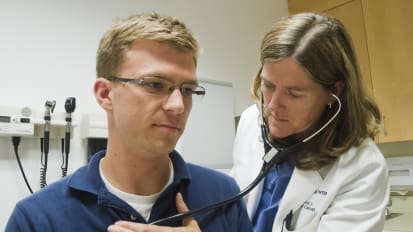 Video
Video
Newer Anticoagulants: Can ACHD Patients Use Them?
Karen Stout, MD, Associate Professor of Medicine in Cardiology and Adjunct Associate Professor of Pediatric Cardiology, reviews a variety of new anticoagulant drugs available that are widely used in patients with acquired cardiovascular disease...
 Video
Video
Patient Reported Outcome Measures Implications for Engaging Patients
Danielle Lavallee, PharmD, PhD discusses patient-reported outcomes (PROs) and itdentifies callenges and future opportunities for PRO implementation in clinical settings.
 Video
Video
Adherence and Medications to Avoid in Heart Failure
Jennifer Beckman, MSN, ARNP, CHFN, discusses general principles related to medication avoidance and adherence specific to the heart failure population.
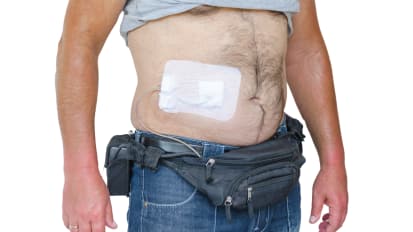 Video
Video
ISHLT 2017 Annual Meeting: Updates on VADs
Shin Lin, MD, PhD gives an overview on the two basic types of left ventricular assist devices (LVAD).
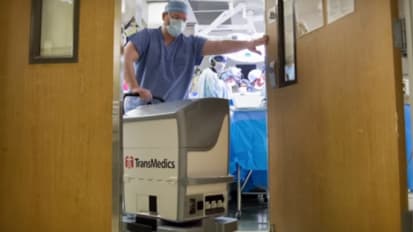 Video
Video
UW Medicine Regional Heart Center is first in the nation to use the “heart in a box” technology in a clinical trial, which enables a beating heart to be transported for use in a transplant surgery.
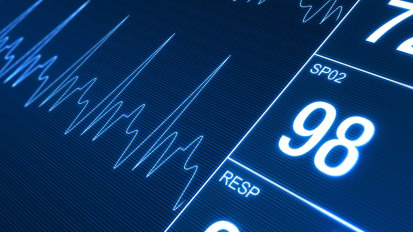 Video
Video
Transposition of the Great Arteries and the Evolution of Adult Congenital Heart Disease
Karen Stout, MD, discusses the transposition of the great arteries and the evolution of Adult Congenital Heart Disease.
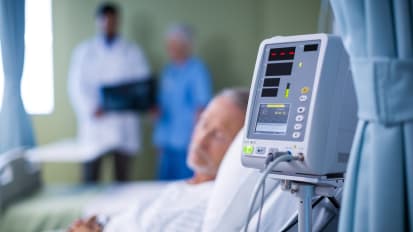 Video
Video
Intersections of Palliative Care and Advanced Heart Failure
James Fausto, MD, FAAHPM explains palliative care in end stage heart failure and reviews treatment options of Dyspnea.
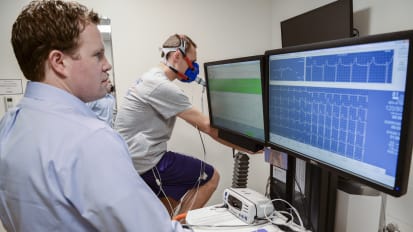 Video
Video
Preventing Sudden Cardiac Arrest in Athletes and Young Adults
David S. Owens, MD, MS, discusses sudden cardiac arrest in young adults and share his experience with diagnosis and treatment.
 Video
Video
Zachary D. Goldberger, MD, covers several upper level topics that go beyond the basics of cardiology.
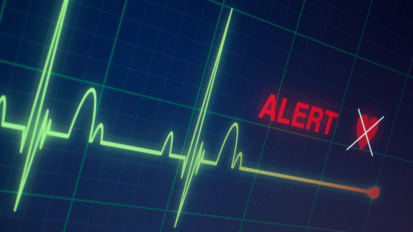 Video
Video
Diastolic Heart Failure: Review and State-of-the-Art
Todd Dardas, MD, MS discusses Diastolic Heart Failure.
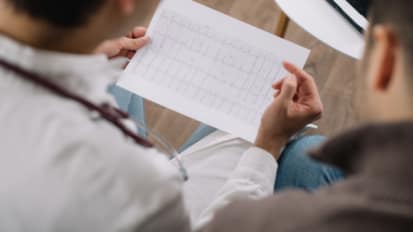 Video
Video
Cardio-Oncology: Risks of Cardiovascular Complications in Cancer Survivors
Richard Cheng, MD, gives an overview of the risk of cardiovascular complications in cancer survivors.
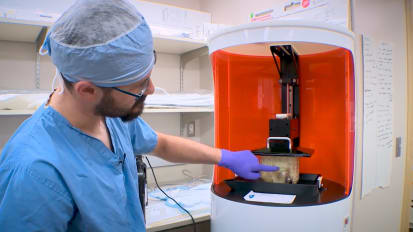 Video
Video
Our heart specialists are using 3D printing technology to plan procedures in patients before their procedures.